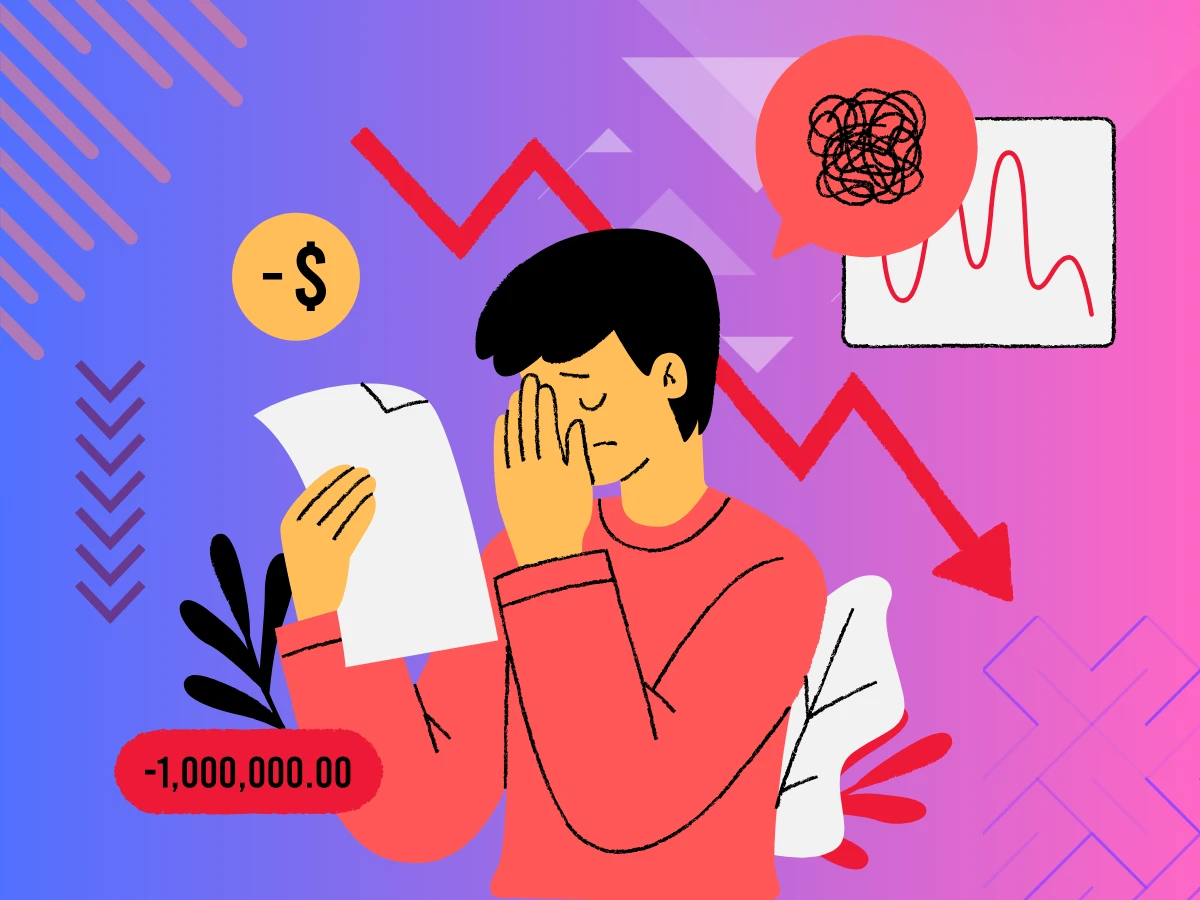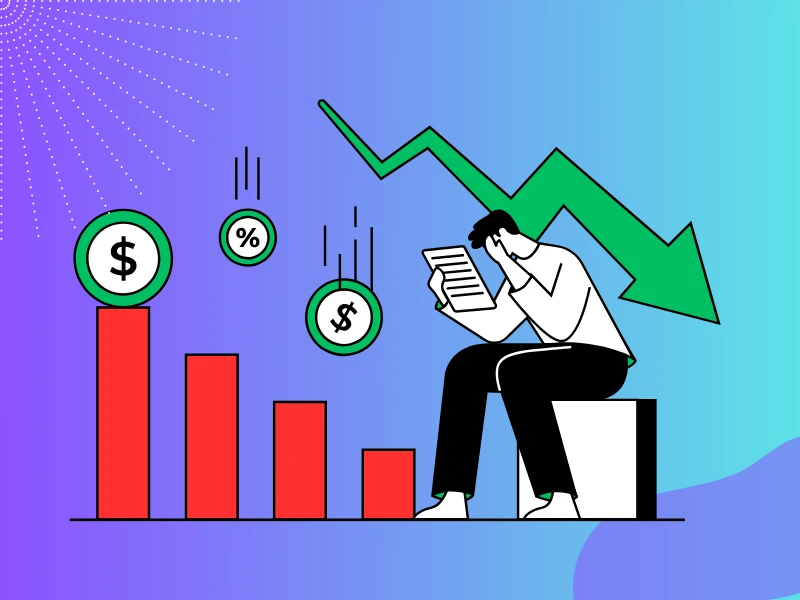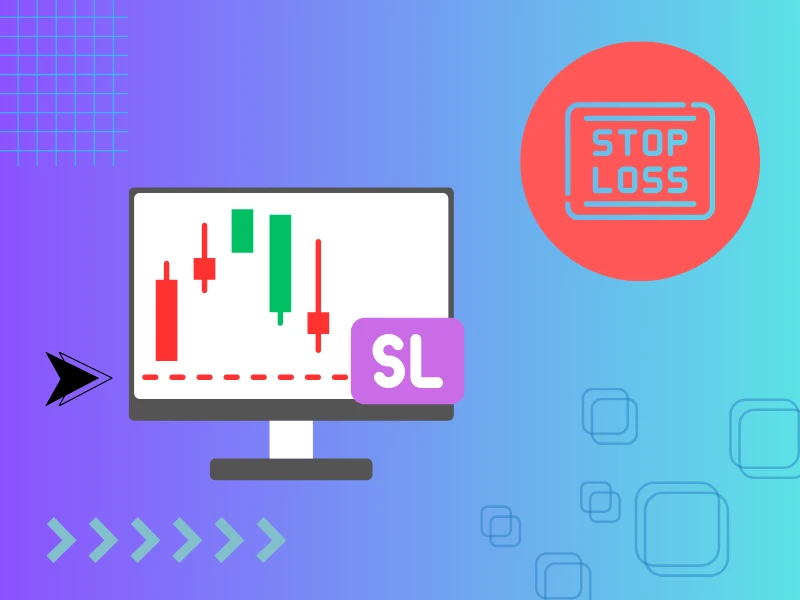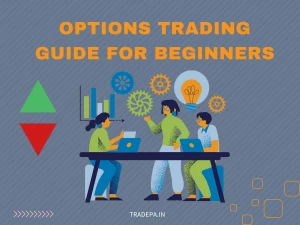Overcome Losses with Strong Trading Psychology Tactics

Introduction
Trading psychology encompasses the emotional and mental aspects influencing a trader’s decisions. It encompasses the feelings, thoughts, and behaviours that traders experience while buying and selling financial instruments. Understanding trading psychology is crucial because it affects decision-making processes, risk management, and discipline. Emotions such as fear, greed, anxiety, and overconfidence can lead to impulsive actions, which often result in losses.
Importance of Handling Losses in Trading
Handling losses effectively is a fundamental aspect of successful trading. Losses are an integral aspect of the trading process, and how a trader responds to them can significantly impact their long-term success. When traders fail to manage their losses properly, they risk falling into a cycle of emotional trading, where decisions are driven by panic, frustration, or the desire to recover lost funds quickly. This can result in additional losses and erode both financial capital and confidence. Developing strong trading psychology helps traders accept losses as part of the process, learn from their mistakes, and move forward with a clear and focused mindset.
Understanding Trading Losses

1. Common Reasons Traders Experience Losses
Traders experience losses for various reasons, many of which stem from external market and internal psychological factors. Common reasons include:
- Market Volatility: Financial markets are volatile, with fluctuating prices due to economic data, geopolitical events, and market sentiment. This volatility can lead to unexpected losses.
- Lack of Knowledge: Inadequate understanding of trading strategies, financial instruments, and market dynamics can result in poor decision-making and significant losses.
- Overleveraging: Using excessive leverage amplifies potential profits and increases the risk of substantial losses. Many traders fall into the trap of overleveraging, leading to more significant losses than their accounts can handle.
- Poor Risk Management: Failing to implement proper risk management techniques, such as setting stop-loss orders or diversifying portfolios, can leave traders vulnerable to significant, unexpected losses.
- Emotional Trading: Decisions driven by emotions like fear, greed, or impatience often lead to rash actions, such as exiting trades prematurely or chasing losses, which can result in further financial setbacks.
2. Emotional and Psychological Impact of Trading Losses
Experiencing trading losses can have profound emotional and psychological effects on traders. The impacts can differ depending on the severity and frequency of the losses:
- Stress and Anxiety: Continuous losses can cause significant stress and anxiety, affecting a trader’s overall well-being and ability to make rational decisions.
- Loss of Confidence: Repeated losses can erode a trader’s confidence, making them second-guess their strategies and hesitate to take advantage of potential opportunities.
- Fear of Failure: The fear of incurring further losses can paralyze traders, leading them to avoid taking necessary risks or exit trades too early, limiting their profitability.
- Frustration and Anger: Persistent losses can lead to frustration and anger, often resulting in emotional trading and impulsive decisions that exacerbate the problem.
- Despair and Burnout: For some traders, ongoing losses may lead to a sense of despair and burnout, causing them to lose interest in trading altogether or to make desperate, high-risk trades in an attempt to recover their losses quickly.
How Trading Psychology Influences Decision-Making
Trading psychology significantly influences a trader’s decision-making process. Emotional states such as fear, greed, and anxiety can impair judgment and result in irrational decisions. For instance, fear might cause a trader to sell a profitable position too early, missing out on potential gains, while greed could lead to holding onto a losing position in the hope of a rebound that never comes. Anxiety can result in hesitation, causing missed opportunities, while overconfidence may prompt excessive risk-taking.
Benefits of a Strong Psychological Foundation
A solid psychological foundation provides several key benefits that can enhance trading performance and overall success:
- Emotional Stability: Traders with a strong psychological foundation are better able to manage their emotions, maintain composure during market volatility, and avoid impulsive decisions.
- Improved Risk Management: Strong trading psychology supports disciplined risk management, enabling traders to adhere to their strategies and set appropriate stop-loss orders, thereby limiting potential losses.
- Consistent Performance: A well-developed psychological approach helps traders stick to their trading plans and strategies, leading to more consistent performance over time.
- Enhanced Focus and Clarity: Traders with robust psychological skills can maintain focus and clarity, allowing them to analyze market conditions objectively and make informed decisions.
- Resilience and Recovery: A strong psychological foundation fosters resilience, helping traders recover quickly from setbacks and losses and learn from their experiences to improve future performance.
Recognizing Fear and Greed in Trading
Fear and greed are two of the most potent emotions influencing trading behaviour. Understanding these emotions is crucial for maintaining a balanced approach:
Fear
- Often stems from the possibility of loss.
- Can paralyze traders, preventing rational decisions.
- May lead to missed opportunities or premature closing of profitable positions.
- Example: A trader sells assets at a loss, fearing a market downturn, only to see the market rebound shortly after that.
Greed
- Drives traders to take unnecessary risks in pursuit of higher returns.
- It can manifest as holding winning trades for too long and hoping for further gains.
- Might result in over-leveraging positions to amplify profits.
- Leads to significant losses if the market moves against these risky positions.
Developing a Resilient Mindset

1. Techniques for Building Mental Resilience
Building mental resilience is essential for traders. Here are some effective techniques:
Mindfulness and Meditation
- Practice mindfulness to stay present and focused.
- Meditation can help decrease stress and enhance emotional control.
Routine and Structure
- Establish a consistent daily routine that includes research, analysis, and relaxation time.
- Having a structured approach to trading can create a sense of stability and predictability.
Physical Health
- Regular exercise can improve overall well-being and stress management.
- Ensure adequate sleep and a balanced nutrition diet to maintain peak mental performance.
Journaling
- Keep a trading journal to record thoughts, emotions, and decisions.
- Reviewing entries can help identify patterns and areas for improvement.
Continuous Learning
- Stay updated with market trends and latest trading strategies.
- Engage in ongoing education to enhance skills and knowledge.
2. The Power of Positive Thinking in Trading
Positive thinking can significantly influence a trader’s performance and outlook:
Optimism
- Cultivating a positive outlook helps traders stay motivated and focused, even during challenging times.
- Optimism can lead to better problem-solving and creativity when facing market difficulties.
Self-Belief
- Confidence in one’s abilities can reduce hesitation and encourage decisive actions.
- Believing in oneself helps maintain discipline and stick to trading plans.
Stress Reduction
- Positive thinking reduces stress and anxiety, allowing for more transparent and rational decision-making.
- It helps maintain emotional equilibrium, especially during market volatility.
Visualization
- Visualizing successful trades and positive outcomes can boost confidence and prepare the mind for actual trading scenarios.
- This mental rehearsal can enhance performance and readiness.
The Importance of Stop-Loss Orders

Stop-loss orders are important tools for managing risk and protecting capital. They help limit potential losses by automatically closing a position once it hits a set price level. Here’s why they are essential:
Risk Limitation
- Stop-loss orders define the maximum loss you will accept on a trade.
- This prevents small losses from escalating into significant financial setbacks.
Emotion-Free Trading
- Automated stop-loss orders remove emotional decision-making from the process.
- Traders can avoid the impulse to hold onto losing positions, hoping for a turnaround.
Discipline and Consistency
- Using stop-loss orders enforces discipline and consistency in trading practices.
- Ensures that risk management rules are followed regardless of market conditions.
Capital Preservation
- Stop-loss orders help preserve trading capital for future opportunities by limiting losses.
- This is very important in volatile markets where sudden price movements can occur.
How to Stick to Your Trading Plan During Losses
Adhering to your trading plan, especially during losses, is critical for maintaining discipline and achieving long-term success:
Follow Predefined Rules
Stick to your plan’s entry and exit criteria, regardless of emotional responses.
Maintain Objectivity
- Treat each trade as part of a larger strategy rather than an isolated event.
- Focus on the overall performance and adherence to your plan rather than individual losses.
Manage Emotions
- Recognize and control emotional reactions to losses, such as frustration or the urge to revenge trade.
- Take breaks if needed to regain composure and avoid making decisions driven by emotion.
Review and Learn
- Regularly review your trades to understand the reasons behind losses and to refine your strategies.
- Treat setbacks as learning opportunities to refine and enhance your trading plan and approach.
How to Bounce Back from Setbacks
Setbacks are an inevitable part of trading, and learning to recover from them is crucial:
Acceptance
- Acknowledge and accept losses as part of the trading process.
- Acceptance helps in moving on without dwelling on past mistakes.
Analysis and Learning
- Analyze the reasons behind the setbacks to identify mistakes and areas for improvement.
- Use losses as learning experiences to refine strategies and avoid repeating errors.
Emotional Control
- Maintain emotional balance by managing reactions to setbacks.
- Deep breathing and mindfulness can help keep emotions in check.
Support Systems
- Seek support from trading communities, mentors, or professionals.
- Sharing experiences and gaining insights from others can provide new perspectives and encouragement.
Goal Setting
- Set realistic, achievable goals to rebuild confidence and track progress.
- Focus on incremental improvements rather than immediate, large-scale success.
Conclusion
In conclusion, overcoming losses with strong trading psychology tactics not only improves immediate trading outcomes but also builds a solid foundation for long-term success. Trading inherently involves risks and uncertainties, and losses are an inevitable part of the journey. However, traders can navigate these challenges with greater resilience and composure by developing and implementing effective psychological strategies.








